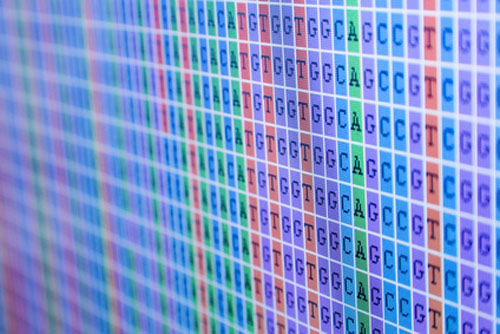
Informing biobank and genomic study participants about whether they are carriers of genetic variants linked to increased disease risk can help identify a significant minority at risk of future diseases such as cancer and heart disease, show results from the Massachusetts General Brigham Biobank.
The study, which was published in the American Journal of Human Genetics, used both array-based genotyping and genome sequencing to detect pathogenic and likely pathogenic variants (PLPVs) in around 2.5% of those tested.
Notably, genome sequencing was more accurate at picking up these variants. Standard genotyping methods incorrectly identified PLPVs in 45% of samples and failed to pick up variants in 72% of a subset of samples compared directly with genome sequencing.
Although there are now many genomic biobanks and similar projects across the U.S. and elsewhere, only a small minority of participants ever receive any data about their health or genetic risks in return for their contribution.
Despite many researchers and participants being keen to implement such an information exchange, the vast majority have not done this yet. This is due to “uncertainties around how to consent participants; which genes to select for return; how to analyze, classify, and report research variants; the logistics of recontacting participants; regulatory requirements necessitating the confirmation of research results; the transition of research participants into an appropriate clinical workstream; and the effort and cost associated with each of these steps,” according to the study authors.
To try and assess how this process could work on a large scale, 36,417 participants in the Massachusetts General Brigham Biobank were selected to have PLPV test results returned to them.
The study took place between 2017 and 2021. Overall, the researchers looked for PLPVs in 59 genes previously linked to disease using genome sequencing and genotyping methods. A total of 425 participants had PLPVs. Of these, 293 were selected who also met selection criteria for higher risk based on their electronic health record and family history submitted when enrolled into the biobank and 256 of this group could be contacted.
Of the 256 individuals who were contacted with result notification and to arrange genetic counselling, 37.5% declined further disclosure of results. Over three quarters of those who went on to receive and confirm their results did not know they were PLPV carriers and over half were eligible for genetic testing based on their health record and family history, but had never had it.
“Many people have a personal or family health history already documented in their medical record indicating they should have been offered genetic testing but never had it, and there are others who had no family history or symptoms to clinically tip doctors off but still carry a dangerous genetic risk variant,” said co-lead author Carrie Blout Zawatsky, a senior genetic counselor for the Brigham and Women’s Hospital’s Genomes2People research program.
The researchers also did an estimate of costs to get an idea of how much this kind of testing would be if added to a new program. They found for individuals who did not have a PLPV detected, the cost was approximately $14 per participant or around $3,224 for those who had a PLPV confirmed and underwent follow up genetic counselling.
“Millions of individuals around the world have been genotyped or sequenced as part of research studies, but very few of these studies have returned potentially life-saving information, in part because of confusion over the logistics and cost of doing so,” said co-senior author Robert Green, a Harvard Medical School professor.
“These data will help other groups planning for the return of genomic results in research and remind us that across the entire health care landscape, we are missing an opportunity to help patients avoid cancer and heart disease by not applying published recommendations for genomic testing.”











